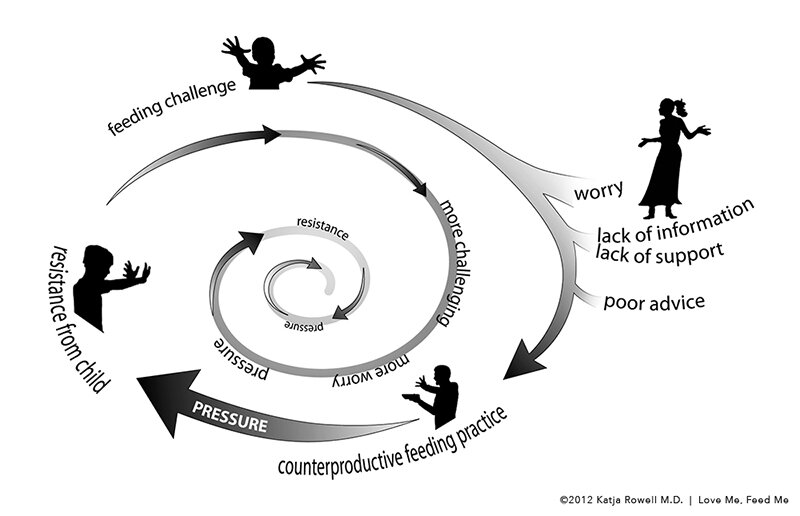Stop the power struggles over food. Help your children heal their relationship with food and their bodies.
MORE information on how complex trauma, the neurodevelopmental lens, self- and co-regulation, and neurodivergence impact feeding.
MORE flexibility and practical information.
An understanding of responsive feeding and therapy.
A responsive and flexible framework for feeding kids with brain-based differences.
An understanding that felt safety and connection are the foundation; where eating, health, and physical function are optimized.
SUPPORT for raising higher-weight children living.
SUPPORT interoception (the body’s experience of internal senses and signals such as hunger, fullness, and emotions).
Love Me, Feed Me: The Foster and Adoptive Parent's Guide to Responsive Feeding
“I have struggled to try to bend research and information in ‘traditional’ parenting books to fit our adoptive family circumstances, but it just never quite matches for our needs. This book changed all that.”
—Amazon review
“My son has been through two years of feeding therapy, and I’ve read a multitude of books, articles, and other resources on the subject. This is probably the single best resource I’ve come across. In my opinion, it is a MUST READ for any parent who has a child with eating concerns (particularly with undereating and very selective eating).”
—David, on Amazon
“As a dietitian and an adoptive mom, I love this book! It takes such a refreshing and empowering approach to feeding your kids. I highly recommend it for any adoptive or foster parent as well as anyone who is struggling with feeding issues with their kiddos.”
— Amazon Review
Responsive Feeding for Foster and Adoptive Parents
A conversation with Katja on the Creating a Family podcast.
The Worry Cycle
Described by parents as the “black hole,” or “circling the drain,” the Worry Cycle can be a difficult place to come back from. Anticipate challenges and avoid the cycle; learn responsive strategies to get out of counterproductive cycles of pressure and restriction.
“I feel like a huge weight has been lifted off my shoulders. I don’t have to control every bite she eats. All I’ve ever wanted is to just treat her like my other kids.”
—Rebecca, adoptive mom
This image may be used as long as it is unchanged and the copyright is included.
Download below.
Downloadable Tools
Food Preference List
From Conquer Picky Eating for Teens and Adults, this is for picky and avoidant eaters: thinking about foods that have been eaten, or that you or your child may want to try again. The list is comprehensive; filling it out can empower teens and adults, as well as offer ideas for new ways to serve and experiment with foods.
Lunch Box Card
Developed when Rowell’s daughter hit preschool, the original lunchbox card can help protect your child from pressure at school and away from home. Print, fill in, laminate, and place it in your child’s lunch. Tell them that if an adult asks them to eat certain foods or in a certain order, they can point to or hand over the card.
Food Intake Journal
“We did a food diary before. How is this different?” Standard nutrition intakes offer only a small part of the picture - the what and how much. This Intake Journal goes deeper, uncovering opportunities for healing. Explore patterns with structure, what you are offering, and interactions. Use as a companion with the books or with your helping professional.
Mind Body Connection Diagram
As you explore the diagram, consider that nervous system regulation does as much, if not more, for heart and physical health as vegetables. A focus on felt safety and connection does not ignore health; it’s the foundation.
Photo by Annie Spratt on Unsplash
More Resources
For a list of products, books, and websites mentioned in the book, as well as links around food preoccupation, avoidant eating and more.





